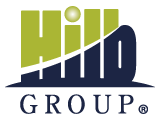Hilb Group of New England – Keene
Formerly Clark-Mortenson
102 Main Steet, Keene, New Hampshire 03431, United States
CONTACT
603-352-2121
NNE_Service@hilbgroup.com
102 Main Steet, Keene, New Hampshire 03431, United States
Mailing Address: PO Box 606, Keene, New Hampshire, 03431, United States
Monday – Friday: 8:00am – 4:30pm
AGENCY LEADERSHIP
Beth Needham, Managing Director
Andrea Axne, Northern New England Operations Manager
Formerly known as Clark-Mortenson Insurance, and in business since 1877, our agency was developed to serve the communities’ insurance needs. With a tenured history of dedicated insurance professionals who can offer personalized insurance solutions for you, your family and your business.
With access to insurance markets throughout the United States, we take the time to find the insurance carrier that’s right for your needs. We help prepare you for whatever life brings, with the right insurance protection, the right plan to reach your financial objectives, and the right people working to help you manage your risk.
We’ve partnered with several associations and insurance companies to develop programs specific to their association members. Current programs include:
- Specialized insurance for members of the New Hampshire Association of Residential Care Homes (NHARCH). Tailored insurance and compliance assistance for the Eldercare and Health Service Industry.
- Private Client Group: Specialized insurance and risk management for high-net worth individuals. Dedicated on site advisors and support staff with experience in working with complicated insurance exposures; including high-valued homes, fine art, secondary homes across multiple states, collectibles and more.
OUR PRODUCTS AND SERVICES
WHAT OUR CLIENTS THINK OF US...
“I am happy to recommend you and Clark-Mortenson to others in the Hospitality Industry. Your staff at Clark-Mortenson have been very helpful whenever we have needed anything. On the occasions when we have had a claim, your support has been excellent and the claim was resolved quickly.”
“I find the Compliance training that Clark-Mortenson offers to be an invaluable resource. It is so convenient to attend a local training that gives me an opportunity to hear other local businesses questions, concerns and possible solutions to our common issues. The training is always high-quality, professional, practical and engaging.”
“We were first introduced to Clark-Mortenson when we attended one of their seminars. I was very impressed with the company’s professionalism and knowledge of our industry. We had been with the same agent for more than twenty years and were reluctant to make a change. We’re thrilled we made the change and feel we have more complete coverage for less than what we paid before!”
